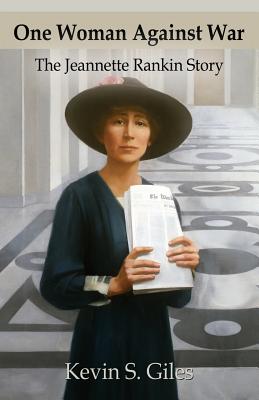
description
mitted to following the dictates of her conscience no matter the consequences. Jeannette Rankin, an early leader for woman suffrage and the first woman elected to Congress, crusaded for peace her entire life. "Killing more people won't help matters," she said.
The Montana native was an American icon of extremes in politics, applauded as a beacon of hope by many people and vilified as a traitor by others. Rankin is widely known as the first woman elected to Congress. Lesser known is that she was a historical oddity, standing as the only American to vote against both world wars.
Rankin's public involvement, rooted in the reform movement of the early 1900s, lasted half a century. She was a vigorous participant in the great suffrage campaigns preceding World War I, a critic of war profiteering in the years leading to World War II, and put her name to an antiwar march on the US Capitol in 1968. Soon after she was named "the world's outstanding living feminist."
The Montana native was an American icon of extremes in politics, applauded as a beacon of hope by many people and vilified as a traitor by others. Rankin is widely known as the first woman elected to Congress. Lesser known is that she was a historical oddity, standing as the only American to vote against both world wars.
Rankin's public involvement, rooted in the reform movement of the early 1900s, lasted half a century. She was a vigorous participant in the great suffrage campaigns preceding World War I, a critic of war profiteering in the years leading to World War II, and put her name to an antiwar march on the US Capitol in 1968. Soon after she was named "the world's outstanding living feminist."
Rankin left behind a rich legacy of pacifism, born in the belief that women, once they had the right to vote, would make a difference.
member goods
No member items were found under this heading.
listens & views

GREAT ORGAN OF THE STADKIRCHE ...
by BRAHMS / RHEINBERGER / SCHUMANN / REGER / BLEICHER
COMPACT DISCout of stock
$14.49
Return Policy
All sales are final
Shipping
No special shipping considerations available.
Shipping fees determined at checkout.






